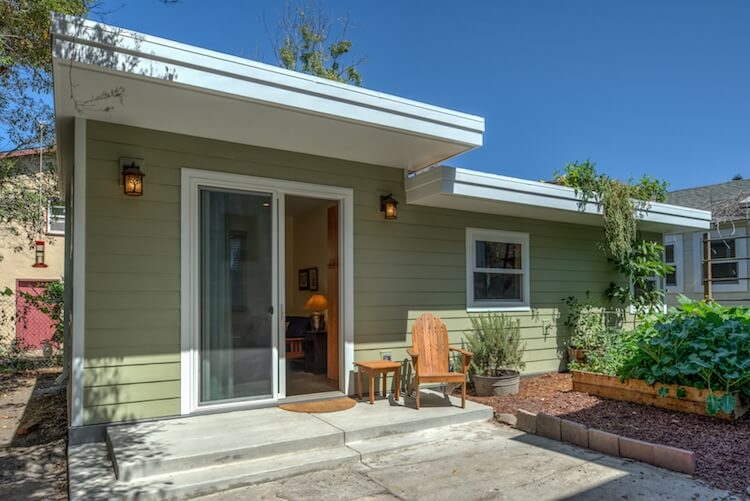Easing of Oakland ADU requirements to be discussed in May 7 City Council Meeting
In its scheduled May 7 agenda, Oakland City Council will be taking up relaxed requirements for Accessory Dwelling Units (ADU), also known as granny flats, secondary in-law units, or in-law units among other colloquial terms.
However you coin them, these pint-sized units are units added to a property inside the envelope of an existing building and are typically developed in an underutilized area like a garage, attic space, etc.
In an earlier post, we noted that a little tweaking of building codes surrounding ADUs did not lead to any meaningful results, but we think that municipalities are starting to get it, as the scalpel is put away and the machete is taken to regulations.
The Council will consider lowering the minimum ceiling height from 7.5 feet to 7 feet. We've all heard the term, "give me a few inches and I'll give you a mile." Those lowered half-inches don't seem to be a lot, but they will make a big difference to many projects that cannot survive the permitting process and any easing of restrictions is welcome news.
The proposal to lower Oakland's ceiling height requirements to 7 feet is not anything drastic - if passed, it would merely bring the city up to par with the statewide standards of 2016 State Housing Law Regulations that state "habitable space, hallways and portions of basements containing these spaces shall have a ceiling height of not less than 7 feet (2134 mm)."
Bornstein Law applauds the removal of barriers to the construction of in-law units or legalizing currently unauthorized units and we urge owners to attend the public meeting or contact elected officials to advocate for a solution that is small in size.
Although many bold solutions have been floated to solve our affordable housing dearth like billion dollar bonds, revamping environmental protection laws and prodding cities to develop more housing with lawsuits, one answer is quite literally in our backyard.
[apss_share]

